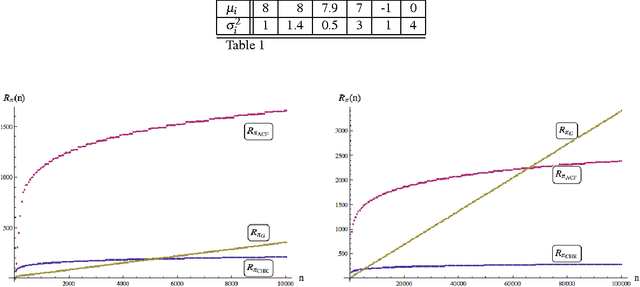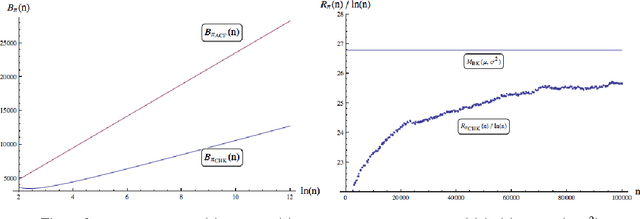Normal Bandits of Unknown Means and Variances: Asymptotic Optimality, Finite Horizon Regret Bounds, and a Solution to an Open Problem
Paper and Code
Jun 03, 2015



Consider the problem of sampling sequentially from a finite number of $N \geq 2$ populations, specified by random variables $X^i_k$, $ i = 1,\ldots , N,$ and $k = 1, 2, \ldots$; where $X^i_k$ denotes the outcome from population $i$ the $k^{th}$ time it is sampled. It is assumed that for each fixed $i$, $\{ X^i_k \}_{k \geq 1}$ is a sequence of i.i.d. normal random variables, with unknown mean $\mu_i$ and unknown variance $\sigma_i^2$. The objective is to have a policy $\pi$ for deciding from which of the $N$ populations to sample form at any time $n=1,2,\ldots$ so as to maximize the expected sum of outcomes of $n$ samples or equivalently to minimize the regret due to lack on information of the parameters $\mu_i$ and $\sigma_i^2$. In this paper, we present a simple inflated sample mean (ISM) index policy that is asymptotically optimal in the sense of Theorem 4 below. This resolves a standing open problem from Burnetas and Katehakis (1996). Additionally, finite horizon regret bounds are given.
 Add to Chrome
Add to Chrome Add to Firefox
Add to Firefox Add to Edge
Add to Edge